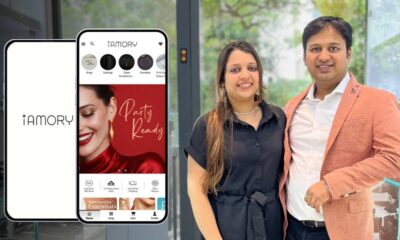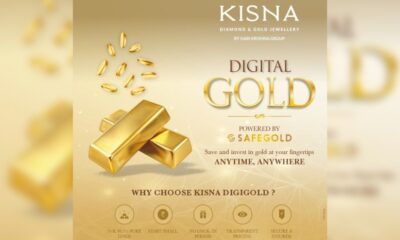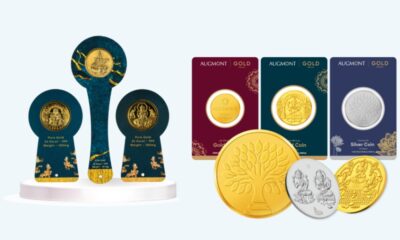By Invitation
Building your personal brand to build your business
Think of Elon Musk, Steve Jobs and Richard Branson. These are well-known people. Elon Musk owns companies like Tesla, SpaceX and Neuralink. Steve Jobs was behind the iconic Apple products such as the iPhone and the Mac. Richard Branson owns Virgin Atlantic. These people are not known because of their companies and businesses. Their companies and businesses are known because of these people. This is the power of personal branding.

Share prices of a company drop when a CEO leaves. On the reverse side, share prices of a company rise when a new CEO joins. This is personal branding. People are ready to bet on a company because they trust the person at the helm. In current politics, the biggest example is Prime Minister Narendra Modi. Whether you vote for the BJP or not, he is the deciding factor, the personal brand.
A personal brand is strategically built. It shapes and promotes an individual’s identity, expertise, and reputation, in such a manner that people are eager to spend money on the business that individual is associated with.
You must have seen in TV ads how famous actors and players become brand ambassadors of certain products. When Amitabh Bachchan endorses a product, he is putting his name and his reputation behind that product. He wants people to buy that product because people trust his judgement. They believe that if he is saying something, it must be true.
While reading this you must be thinking personal branding is all about mega businesses and mega personalities. Where does that leave a small business? Can you use personal branding to promote your business? Yes you can. If you believe your business depends on trust and reputation, you can add your own personal branding to the overall trust and reputation that your business has so far enjoyed.

The benefits of building your personal brand
Your personal brand helps you build credibility and trust in your niche. When people recognize your expertise and consistency, they trust your opinion and through your opinion, the trust your product or service. Your personal brand also helps you build your network. You connect with
like-minded people who have established themselves as an authority in their field or profession. Through your powerful personal brand, you can positively influence people. You inspire change in their thinking. You can help them decide. Also, in a market full of similar products and personalities, your personal brand helps you stand out. Your customers and business partners can differentiate you from your competitors.
How do you build your personal brand?
Building a personal brand is not as difficult as it used to be. There are multiple platforms available to you where you can increase your visibility and the good thing is, 99% of such platforms are available on the Internet, and mostly free.
But before that, do an audit of your strengths, passion, and your mission. Why do you do what you do? What unique value can you offer? Why should people pay attention to you? Within your field, where would you like to excel and make your name? What sets you apart? What strengths you already have that you can build on? Who is most likely to benefit from your abilities?
Once you have written down answers to these questions, you need to decide how you want to elevate your visibility so that more people know about your expertise. You can write a book. You can create a social media presence by regularly posting insightful, authoritative content. But before that find out where your audience spends time looking for content you are interested in sharing. Is it LinkedIn? Is a Twitter? Is it Instagram? Be consistent. Add value to people’s timelines. Inform and encourage.
Share knowledge and insights that others don’t share.
If you have contacts in popular publications like newspapers and magazines, you can get your expert opinions published over there, for example, getting an article published in Forbes can immediately enhance your authority. Using blogging platforms like Medium and LinkedIn you can even publish your own blog posts as authoritative commentary on your chosen topics.
Take up speaking opportunities. There may be many conferences and seminars where you can speak and share your experience to enrich the audience.
Building a personal brand these days requires a strategy. Continuously evaluate your effort. Gather data of the responses that you get on social media. What type of content gets the maximum traction? Publish more of such content. What topics excite people? Talk about those topics.
Participate in ongoing discussions. It takes time, effort, and dedication. Be persistent, remain consistent in your efforts, and above all, deliver value.
By Invitation
Natural diamonds have to rediscover their relevance to a jaded consumer that wants to separate themselves from the past
By Edahn Golan

Martyn Charles Marriott, drawing on 45 years in the diamond industry, in a blog titled Co-Operation between African Diamond Producers on the IDMA website, advocates for a new era of co-operation among African diamond producers, seeing the current debate around De Beers’ future as an opportunity. He proposes forming a diamond “OPEC,” reminiscent of the stability once maintained by the Oppenheimers’ Central Selling Organization (CSO). The CSO, through a stockpile, quota system, and vast generic advertising historically benefited the entire industry. Marriott believes a collective entity involving nations like Botswana and Angola would be more stable and bankable than a single-country approach.

JewelBuzz spoke to noted diamond industry analyst Edahn Golanon his take on Marriott’s view and how practical and feasible this “ nostalgic yearning” was. This is what Edahn Golan has to say:
I don’t think that resurrecting a monopoly is possible, much less legal. I understand the nostalgic yearning for the ‘good old days,’ but that is not where the solution will be found. On the contrary, the industry at large – and De Beers in particular – needs to evolve and adapt. They both need to reinvent themselves.

Natural diamonds have to rediscover their relevance to a jaded consumer that wants to separate themselves from the past, a consumer market that wants luxury that doesn’t shout bling. Most importantly, diamonds should stand for values that are relevant to today’s cultural norms.
That is where diamonds will find their future, not by reimposing tight control on the pipeline.
I also read Chaim Even-Zohar’s column. I worked with him for many years and hold deep respect for both him and his approach to the industry.
That said, I believe Botswana does not need to go all in on owning De Beers.The country already receives more than 75% of the diamond revenue generated locally, along with a portion of the revenue De Beers earns from its operations in Namibia, Canada, and South Africa. Expanding that share or seeking a larger cut from other countries would only deepen Botswana’s dependency on diamonds.
Instead, Botswana should diversify its income sources and invest more internally, a process it should have initiated more than a decade ago.
For example, if it channels investment into its international airport and succeeds in expanding tourism, the country would generate greater income, reduce its reliance on luxury sales, improve foreign currency inflows, and, in the process, expose more of the world to its diamonds.
-

 National News2 hours ago
National News2 hours agoiAMORY Goes Mobile: D2C Jeweler Debuts App to Disrupt India’s ‘Counter-Led’ Retail
-

 New Premises1 hour ago
New Premises1 hour agoChow Tai Fook Goes Global: Iconic Jeweler Debuts in Bangkok with Eyes on the West
-

 National News5 hours ago
National News5 hours agoKISNA Diamond & Gold Jewellery launches KISNA Digital Gold in partnership with SafeGold, expanding its omnichannel gold ecosystem
-

 ShowBuzz3 hours ago
ShowBuzz3 hours agoExperience A New Era of Diamond Jewellery at the revamped DP Jewellers Ujjain & Udaipur Branch











